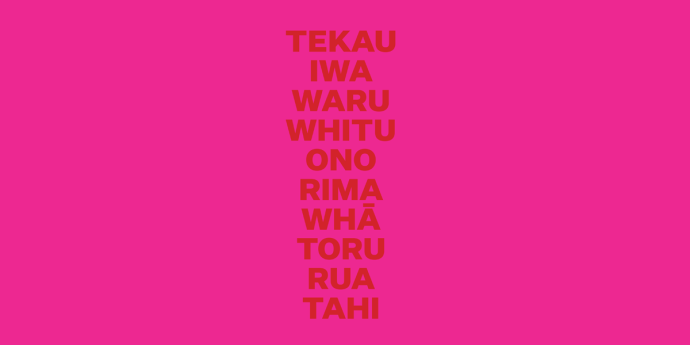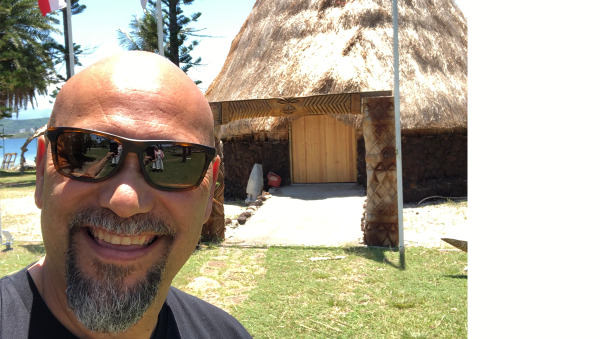How lift-off was achieved
Partnership for Rocket Lab’s satellite launch site based on embracing kaupapa Māori values and principles.

When George Mackey shared his governance experiences at an IoD Company Directors’ Course he wasn’t expecting the level of interest it created.
As former chair of the Tawapata South Incorporation management committee, Mackey led the process of partnering with Rocket Lab to host a satellite launch site on part of the Māori entity’s land at Māhia Peninsula.
“There was a very diverse mix of participants on the IoD course, including a number of CEOs and CFOs, so I wasn’t sure what I could add to the conversation,” says Mackey. “But people were really interested and wanted to hear more about the process we worked through.”
Essential to that successful process was the two organisations embarking on a journey together, with kaupapa Māori values and principles placed front and centre, and a clear focus on how the relationship would work effectively into the future.
“The interest from people on the course made me think more about the value of having board members providing a Māori perspective on the boards of non-Māori organisations,” says Mackey.
“The Māori economy is now around $70 billion so if an organisation or business wants to be succeeding in New Zealand they have to consider having a relationship with Māori business and having that Māori context on the board because there is opportunity there.”
Mackey has significant experience in Māori public policy, having worked for Te Puni Kōkiri for more than 19 years. He is currently regional director for Ikaroa-Rāwhiti.
His governance work has included 10 years as a member of the Tawapata South committee of management, two as chair, before stepping down three years ago. He also served on the Māori relationship board for the former Hawke’s Bay District Health Board.
Tawapata South has 1,700 shareholders, descendants of Polynesian voyages who settled in the area centuries ago. The land is also home to a large sheep and beef farm, but the committee had recognised the need for diversification.
However, after Rocket Lab founder Peter Beck approached them, identifying the location as ideal for his unique venture, a huge amount of work was needed before the committee and shareholders could be confident the arrangement would meet their commitment as caretakers of the land.
“You have a Māori incorporation and 10,000 acres of Māori freehold land you have hung on to post Treaty. That is significant, so shareholders are going to be risk adverse and do everything they can to protect and retain that land, environment and cultural sites sustainably for future generations.”
While Rocket Lab, New Zealand’s only commercial space launch company, embraced those values and requirements wholeheartedly, Mackey says Māori perspective is not always well understood in business.
“You have a Māori incorporation and 10,000 acres of Māori freehold land you have hung on to post Treaty. That is significant, so shareholders are going to be risk adverse and do everything they can to protect and retain that land, environment and cultural sites sustainably for future generations.
“When we got the offer, it required quite an unusual fiscal review. There was the opportunity and potential but also so many other values around that from the kaupapa Māori point of view.
“It is a significant stretch of coastal land. We had to look at how the proposal would be viewed by shareholders, by the wider community and in iwi politics, which is strengthening daily as iwi has a voice at an increasing number of tables.
“We had to carry all that along the pathway and the committee had to work hard to ensure our values were aligned and to bring the shareholders over to being confident of that.
“There was a strong feeling of wanting to help a fellow New Zealander to do something quite amazing, but it had to tick all the boxes, not just as an opportunity and fiscal framework but also our values as Māori landowners.
“It was a long process – about 10 months of talking before we reached a commercial agreement and then three years before the first launch in 2017.”
“We made so much progress and from that one day we ended up with a commercial agreement based on reciprocity and our shared dual outcomes.”
Initially, a draft agreement bounced between respective lawyers for some months. “It was costing quite a lot in legal fees and not quite hitting the mark. With respect to the legal firms, no one had ever negotiated a rocket launcher site on New Zealand land before,” Mackey says.
“We sat down with Peter and went back to the first principles, and that is where the Māori perspective came in. We said, ‘we want to help you to be the best launch facility you can be – and they said, ‘we want you to be the best farmers and the best Māori organisation you can be’.
“We made so much progress and from that one day we ended up with a commercial agreement based on reciprocity and our shared dual outcomes.”
A decade on, the enduring effect of that careful future-focused process is clear.
Taking a long-term view, Tawapata negotiated a royalty payment for every launch. It also entered into a 21-year agreement with Rocket Lab, set out as a series of three-year leases, with six rights of renewal.
“Every three years everyone sits down to talk about how the system is working and if we need to make any changes. That provides more control to the farm and for Rocket Lab, and a potential ‘out’ on either side if required.”
The corporation now earns more revenue from the Rocket Lab relationship than from farming, Mackey says. “That is good for the shareholders. Many farms are expected to make a loss this year, so the Rocket Lab funds are particularly important during the hard times.
“We now have a full commercial launch facility on the land that we get better than commercial returns from. There have also been by-products, such as some good infrastructure that government has supported, including roads upgrades, power supply sustainability and reliable internet.
“Rocket Lab also provides a scholarship covering study fees up to $20,000 for students with whakapapa to the site or from the wider Wairoa community, who are studying science, technology, engineering or maths.”